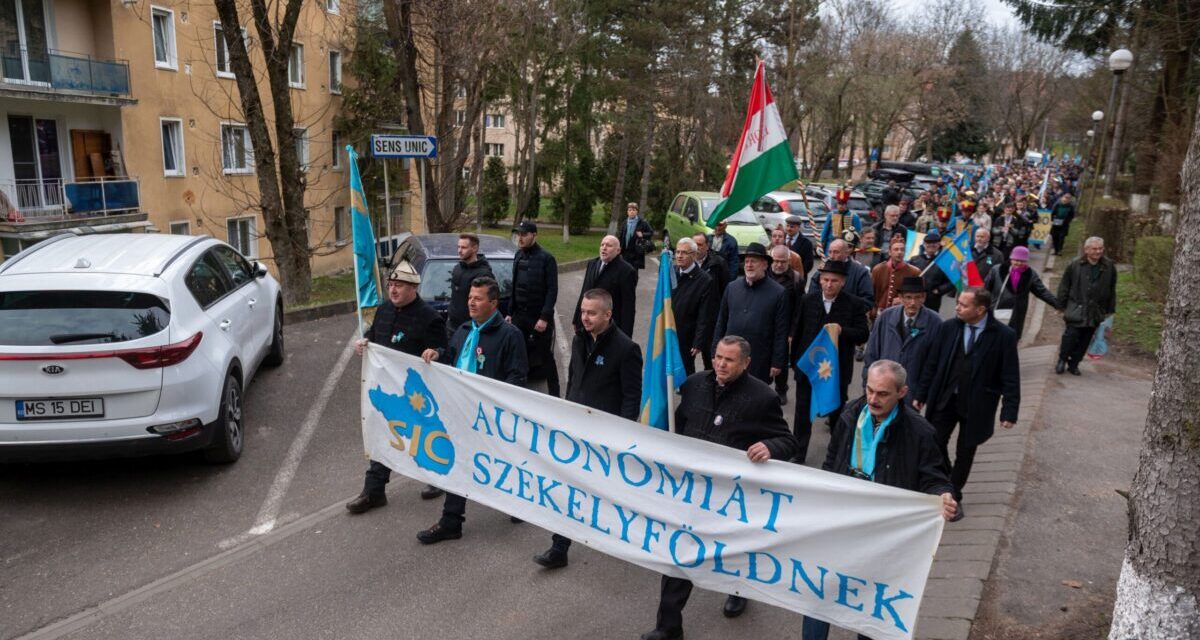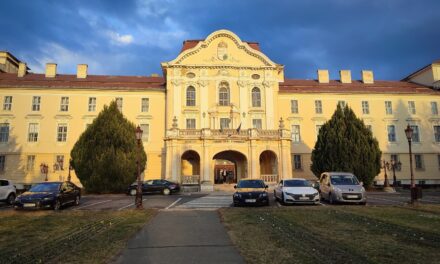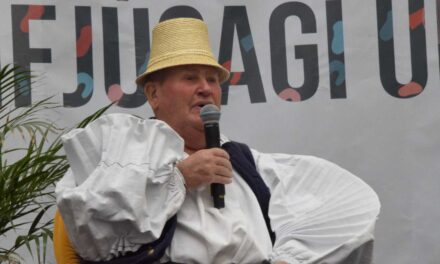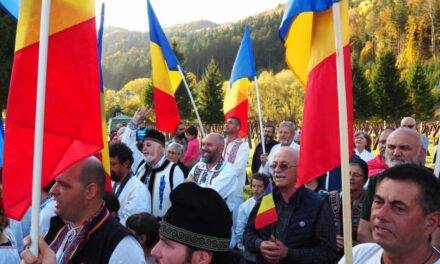The criminalization of autonomy is a gross political mistake on the part of the Romanian political class stemming from biased anti-Hungarianism.
A petition demanding the territorial autonomy of Székelyföld was accepted on Sunday in Marosvásárhely, at the obelisk of the martyrs of the 1852 anti-Habsburg Székely organization on the occasion of the Székely Freedom Day.
The document addressed to the Romanian authorities, read by Izsák Balázs, president of the Székely National Council (SZNT), points out:
the people of Székely want to manage the affairs of the region where they are the majority, following the example of European practice and the principle of subsidiarity.
At the same time, it states: The territorial autonomy of Székelyföld does not violate the territorial unity and sovereignty of Romania, the interests of citizens of other nationalities in the region, nor the country's constitution.
According to the petition, Romania's 30-year-old debt is the fulfillment of the obligations assumed upon joining the Council of Europe, the implementation of recommendation 1201/1993 related to autonomy, and the later decision 1334/2003.
"We are all committed supporters of peace and security. In the spirit as formulated by several decisions and recommendations of the Council of Europe. Thus, Resolution No. 1334/2003 recommends the institutional system of territorial autonomy to prevent and resolve internal conflicts," recalls the manifesto, in which they demand that Székelyföld create an independent administrative and development region with autonomous powers, based on the draft law developed by the SZNT.
The participants accepted the petition with a public outcry, chanted slogans demanding autonomy and stretched banners reading Autonomy for Székelyföld.
In his speech in Marosvásárhely, László Tőkés assessed it as: the criminalization of autonomy on the part of the Romanian political class, a gross political mistake stemming from biased anti-Hungarianism. He pointed out: supporters of Hungarian autonomy in Transylvania should not be labeled as extremists.
"We are neither extremist nor separatist, Budapest is neither revisionist. The Hungarians do not threaten the territorial unity and integrity of our country in any way," he stated.
In response to the statements of Romanian Prime Minister Marcel Ciolacu denying the existence of Székelyföld and calling its autonomy excluded, the president of the Transylvanian Hungarian National Council (EMNT) said: Denying the mere existence of Székelyföld is absurd, as it contradicts a geographical and historical reality, on the other hand, according to him, "a real assassination of the regional and ethnic identity of Székely against his identity".
László Tőkés noted that the autonomy of the Gagauzians began when Chisinau declared that Gagauzia does not exist, but later the Republic of Moldova forced Gagauzia's autonomy into law.
"We expect the same from the Romanian parliament: enshrine in law the territorial self-determination of Székelyföld, the three-level autonomy of the Hungarian national community in Transylvania - included in the RMDSZ program. "Romania should not be more pontifical than the Pope, that is, President Macron, who recognized Corsica's right to autonomy with an unexpected political opening and initiated the start of the negotiations for this," said László Tőkés in Marosváráshely.
Attila Csibi, mayor of Erdőszentgyörgy, president of the Maros county organization of the RMDSZ, stressed the importance of this year's elections in his speech to the participants of the demonstration. He pointed out: the people of Székely and the Transylvanian Hungarians in general can write their own history only if they are among the winners - also in elections.
Luke Uribe Etxebarría, a representative of the Basque National Party, and Carles Fité Gabarro, a member of the national secretariat of the Catalan National Assembly (ANC), who were present at the autonomy demonstration in Marosvásárhely and gave a speech, encouraged the participants to persevere and consistently stand up for their political goals.
After the commemoration, the protesters marched to the main square of Marosvásárhely to hand over the petition to the government representative.
In 2013, the SZNT declared the tenth of March the Székely Freedom Day. On this day, in 1854, the leaders of the anti-Habsburg Székely organization two years earlier, János Török, Mihály Gálfi and Károly Horváth, were executed. At the martyrs' memorial column in Marosvásárhely, since then - with the exception of a forced break during the pandemic - the SZNT has organized a march demanding commemoration and autonomy every year.
MTI
Cover image: Participants march at the Marosvásárhely event held on the occasion of the Székely Freedom Day on March 10, 2024.
At the assembly, a petition demanding the territorial autonomy of Székelyföld was accepted, which was handed over to the representative of the Maros county prefecture. Source: MTI/Gábor Kiss













